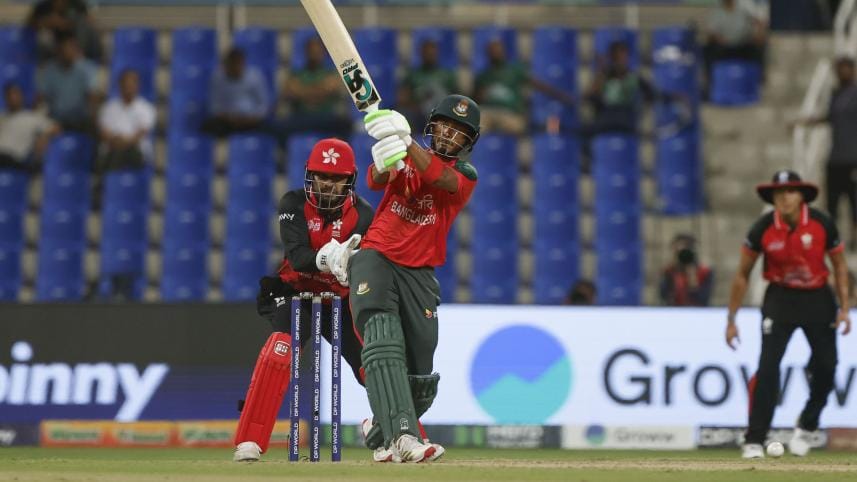Think big to hit big!

Six-hitting remains Bangladesh's Achilles heel in T20Is -- at least that's what any avid watcher would conclude.
Yet insights from Julian Wood, who was brought in by the Bangladesh Cricket Board (BCB) for a power-hitting camp ahead of the ongoing Asia Cup, may reveal the underlying reasons behind the Tigers' struggle to clear the ropes consistently.
Among Test-playing nations, Bangladesh rank 10th in six-hitting rate. Between 2006 and 2023, they averaged only 3.8 sixes per innings -- the lowest among Test teams. From 2023 to 2025, there was some progress, with the average rising to 6.1 sixes per innings.
But in the Asia Cup group stage, Bangladesh showed little sign of improvement. Instead, new concerns surfaced. The Tigers managed just eight sixes across their three games -- an average of 2.67 per match -- despite having undergone dedicated work on power-hitting.
Wood identified the Tigers' timid mentality as the root of the issue, pointing to a regressive mindset shaped by the team environment.
"If you're chasing 100, win it in 10 overs," urged Wood, who had returned to England after his short stint with the side. "If you're chasing a low score, like we did against the Netherlands, you should aim to win it in 10 overs. You should sit down halfway through the game and say, 'Right, that's what England would do.' You need to challenge yourself to do that. My only concern is that this doesn't really happen."
The lack of aggression was most evident against Sri Lanka. Bangladesh hit only one six in that game -- their only defeat in the tournament, which hurt their net run rate and forced them to depend on other results to qualify for the Super Four.
Wood admitted that the "dry and slow UAE pitches" could have been a factor, but the Tigers' performance still raised questions. "I thought Sri Lanka bowled really well. They had two wicket maidens in the first two overs of the Powerplay. The grounds are big, and it is the Powerplay where you need to target big," he explained.
But large grounds and tricky wickets are the same for everyone, where the Tigers' Group B opponents thrived. In their first two matches, Sri Lanka cleared the boundary nine times, while Afghanistan smashed 19 in two games so far.
Even in Bangladesh's eventual win over Afghanistan, their finishing exposed glaring flaws. During the penultimate over, Jaker Ali failed to connect with three consecutive deliveries from pacer Azmatullah Omarzai, and his struggle carried into the final over.
Wood recalled speaking with Jaker afterward, telling him he had "tried to hit too hard and lost shape" -- something probably Wood had not expected from Jaker, whom he had termed the 'ice-man' during that short power-hitting camp.
But Jaker was not the only concern. After scoring briskly at over 10 runs an over in the Powerplay, Bangladesh could add just 35 runs in the final five overs -- without a single six in the last 47 deliveries.
According to Wood, the Tigers "hit the panic button" against Afghanistan. More importantly, he highlighted their limiting mindset of seeing themselves as a "160-170 side."
"They need to change that mindset to one where they aim for 200," Wood emphasised. "If you set yourself up for 200, depending on the surface and game situation, you might get 180."
For Bangladesh, the challenge extends beyond this Asia Cup. They must shed their mental shackles to truly compete in T20Is -- a format where totals north of 300 have already been reached.




 For all latest news, follow The Daily Star's Google News channel.
For all latest news, follow The Daily Star's Google News channel.
Comments